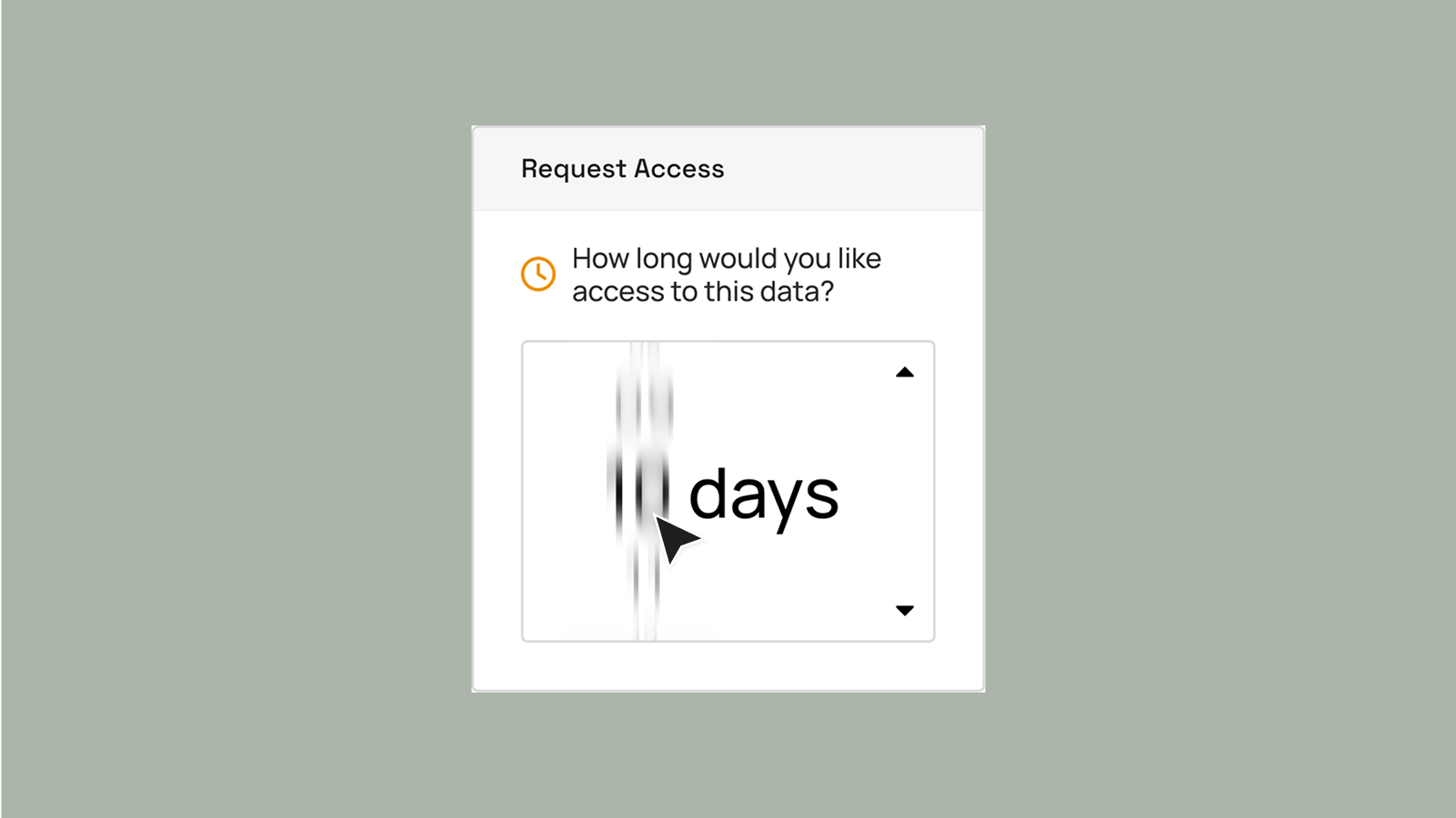

How to Use Immuta Policies to Achieve ITAR Compliance
In today’s globalized business landscape, data is a critical asset. However, they must still contend with the friction between provisioning data in real-time, and maintaining security and compliance. For companies dealing with sensitive defense-related information, the stakes are particularly high due to the non-negotiable need to ensure compliance with regulations...

Why Collaboration and Controls are Central to Data Risk Management
We operate in a world of risks. Whenever we get behind the wheel of a car, flip a light switch in our home, or enjoy an alcoholic beverage, we are accepting an inherent level of risk associated with each activity. But this doesn’t stop us from doing them. Similarly, cloud data...

3 Best Practices for Maximizing Data Management Efficiency
In 2020, global spending on cloud data services reached $312 billion. In 2022, Gartner estimates that this number will rise to a staggering $482 billion. This immense increase proves that the migration to and adoption of cloud platforms is the bona fide standard for contemporary information services and analysis. With...

Discover Frameworks: Bridging the Gap Between Regulation & Application
“What data do we have?” Data’s entire life cycle – from collection, to analysis, to insights and business-driving application – begins with this question. Understanding your organization’s data remains critical to effectively using and protecting it, especially as platforms, users, and data sets constantly evolve. But gaining a contextual understanding...

3 Emerging Data Security Laws and What They Mean for You
The past few months have been particularly hectic for lawmakers across the European Union (EU). With Ursula von der Leyen’s leadership of the European Commission set to conclude after the 2024 elections, lawmakers have felt the pressure to advance critical files and policies as quickly as possible. Amid this legal...

The Complete Guide to Data Security Compliance Laws and Regulations
Compliance regulations in the data security space are constantly changing and evolving, with more new acronyms for regulatory standards being introduced every year. In our global economy, staying compliant with government and industry regulations can be challenging, but with the right strategies, it doesn’t have to be a major burden....

What Is the EU-US Data Privacy Framework & How Should You Plan?
The General Data Protection Regulation (GDPR) is one of the most wide-reaching and stringent data compliance laws and regulations, with penalties for violating its terms reaching 4% of an organization’s prior year worldwide turnover. Although some of its provisions, such as Chapter 5, have fed more debate and litigation than others, it’s...

Why Is GDPR Compliance Important and How Do I Achieve It?
A modern analytics environment is typically built to reduce time to data, leaving compliance as an afterthought. Yet, without a compliance-by-design approach, the analytics environment is likely to break in weeks because safeguards like purpose-based access control are missing; data minimization and de-identification techniques are inadequate and data access requests...

Data Mesh Implementation for Highly Regulated Industries
The concept of the data mesh architecture is widely recognized and often sought after by data teams across a variety of industries. Given its range of promising benefits – including enhanced data democratization and business-driving data products – this should come as no surprise. But with the technical, structural, and organizational overhauls required to...

5 Best Practices for Secure Data Sharing
In our globalized world, data sharing is table stakes for organizations that want to innovate and compete. Gartner has predicted that enterprises that share information will outperform those that do not on most business metrics, and leading organizations like Snowflake and AWS are already offering data exchanges to simplify the process. But as consumers become increasingly...

Updating Australian Privacy Law: The Big Shift
On February 16, 2023, Australia’s Attorney-General’s Department (AGD) publicised its Review Report, the latest output in the Privacy Act 1988 review process that began in 2020. The report seeks to strengthen the Act, while retaining the flexibility of its principles-basis. One core motivation is to bring the Privacy Act closer to...

How Immuta’s ISO 27001/27701 Compliance is Enhancing Data Security
As the world becomes increasingly digital, data security has become a critical concern for businesses of all sizes. Threats to data are evolving as technology and bad actors become more sophisticated, which makes the challenge of protecting sensitive information that much more complicated. Ensuring that data protection processes and policies...

5 Steps for an Effective Data Breach Response
With global business and operations so heavily reliant on data collection, sharing, and analysis, data breaches can seem inevitable. In fact, the Identity Theft Resource Center (ITRC) reports that there were 445 publicly-reported data compromises in Q1 of FY23 that affected 89,140,686 individuals worldwide. While organizations often take a proactive approach to...

Why Tech Companies Should Care About Healthcare Data Breaches
Health data is one of the most valuable assets organizations in the healthcare and life sciences industry can possess. It’s also one of the most vulnerable. Over the years, legal steps have been taken to protect healthcare data security and patient privacy. The Health Insurance Portability and Accountability Act (HIPAA), passed by...

Best Practices for Data Security in Modern Cloud Platforms
As the volume of data generated, transformed, stored, and accessed has increased, digital transformation has significantly altered how companies do business and use data to create value. To deal with increasingly complex unstructured and semi-structured data, organizations are looking to build their analytics to stay competitive. Along with this, the...

What is Data Governance in Healthcare and Why is it Essential?
According to the U.S. Department of Health and Human Services’ Office for Civil Rights, there were 4,419 reported healthcare data breaches between 2009-2021. As a result of these breaches, roughly 314,063,186 health data records were exposed to those with no right or legitimate purpose to access them. In the first half...

Immuta and Snowflake: A Winning Partnership
“What’s really critical to Snowflake customers is that…to use the data that they have, they have to make sure that it’s secure and governed correctly. And Immuta helps them to make sure that it is.” – Paul Gancz, Partner Solutions Architect, Snowflake At Snowflake Summit 2022 in Las Vegas, Immuta had the chance...

The Data Privacy Regulation Roundup: What Data Teams Need to Know
When the General Data Protection Regulation (GDPR) entered into force, US privacy law was still in its infancy. Though enforced by the European Union (EU), the GDPR had wide-ranging implications for organizations well beyond Europe. And though it has become the regulatory standard in data privacy since it became applicable...

Redefining Data Sharing for Financial Services
As business continues to shift to increasingly digital environments, the aggregation and sharing of financial data is predicted to have a staggering impact on the global economic future. According to research by McKinsey, “economies that embrace data sharing for finance could see GDP gains of between 1 and 5 percent by...

What is Policy-as-Code and Why is it Important?
In the cloud computing era, ensuring data policy is co-created with data is essential. Historically, data access and security policies were an afterthought, leading to sub-optimal implementations. These implementations give rise to confusion, data leaks, and unsustainable maintenance burdens. In order to be effective, organizations need to separate policy from cloud platforms....

How to Create a Data Governance Framework
By 2025, experts anticipate that there will be around 175 zettabytes of data in the world, up from only 44 zettabytes in 2022. While those numbers are incomprehensibly large (a zettabyte is the equivalent of a trillion gigabytes), they help demonstrate that there’s an enormous and rapidly growing amount of data in...

How to Achieve Data Security Governance and Compliance
As data further cements itself as an essential resource for modern businesses, more steps must be taken to guarantee its security. Why? These measures may be related to how and why data access is governed, ensuring that proper data access controls are in place to maintain the necessary security of...

What Are the Key APRA Data Security Standards?
Financial data is among the most sensitive information an organization can possess, yet its use is essential to the health of global markets. It’s no secret, therefore, that data security in financial services is a highly scrutinized topic – and one that is subject to a plethora of data compliance regulations. The Australian...

Announcing SOC 2 Type 2 Attestation at Immuta

What Is a Data Clean Room?
As data has become one of the most prized resources for companies around the world, two vital imperatives have increasingly butted up against each other in conversations among private companies, consumers, and government regulators — the desire to harness customer data for profit and the need to keep that data...

How to Put Zero Trust Principles to Work for National Security
It is something along the lines of common wisdom to describe cybersecurity as one of the biggest strategic challenges confronting the United States. And that challenge is growing in scope; In 2023, US federal agencies experienced a 5% increase in cybersecurity incidents — totaling over 32,000 — compared to the...

What is Metadata Management?
Metadata management is the collection of policies, processes, and software/hardware platforms used to manage and store metadata for your organization’s data assets. The larger and more complex the stockpile of data assets, the more critical proper metadata management is for ensuring that data is usable, secure, and available for individuals...

The Top 5 Barriers to Data Sharing and How to Overcome Them
Technology has made our world increasingly interconnected and interdependent, and as a result, the need to share data to remain competitive is more important than ever. Yet, despite the competitive advantages associated with data sharing, many organizations still treat it strictly as a data function instead of a business priority. According...

Why You Need a Data Audit Trail
Data leaks are everywhere in the news. Is your company safe and readily able to prove compliance? While advanced security measures have become increasingly important for protecting businesses against data breaches, lost data, or other security threats, one simple and straightforward tool is often overlooked — the data audit trail.

What is Data De-identification and Why is It Important?
Data de-identification is a form of dynamic data masking that refers to breaking the link between data and the individual with whom the data is initially associated. Essentially, this requires removing or transforming personal identifiers. Once personal identifiers are removed or transformed using the data de-identification process, it is much easier to...

How to Unlock Successful, Scalable GDPR Compliance
The General Data Protection Regulation (GDPR) is omnipresent: It applies to every person or entity processing personal data in the European Union (EU), as well as all organizations that process the personal data of individuals located in the EU. The regulation seeks to increase individuals’ control over their personal data, including...

How to Avoid the Most Common Cloud Migration Challenges
Cloud provider capabilities are evolving faster than ever, and enterprises are taking notice. With all the progressive features, cost savings and labor efficiencies modern cloud data access control platforms offer, why wouldn’t organizations seize the opportunity to accelerate data analytics and derive insights that could give them a competitive edge? Unfortunately, cloud migration doesn’t...

Differentiating Data Security in the GDPR from Privacy
The European Union’s General Data Protection Regulation — one of the most forward-leaning privacy regulations on the planet — was praised by Tim Cook in a recent speech in the EU because our personal data is “being weaponized against us with military efficiency.” Those are strong words, and frankly, accurate:...